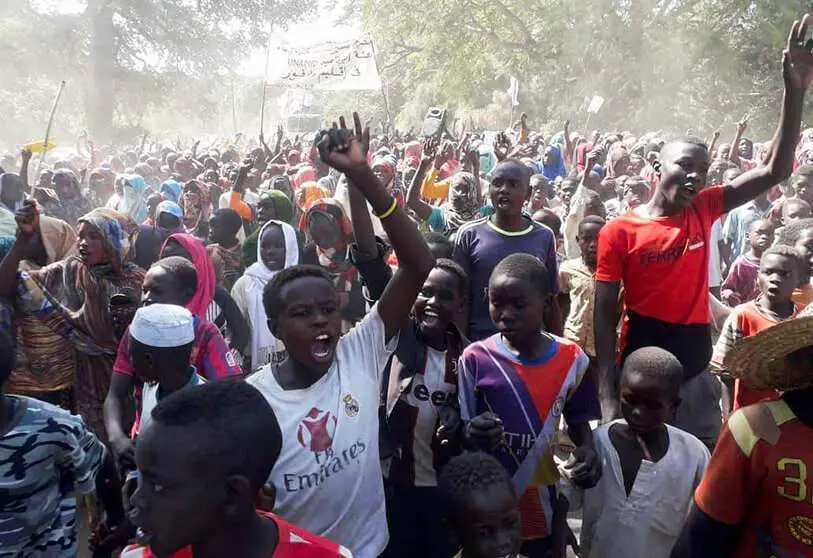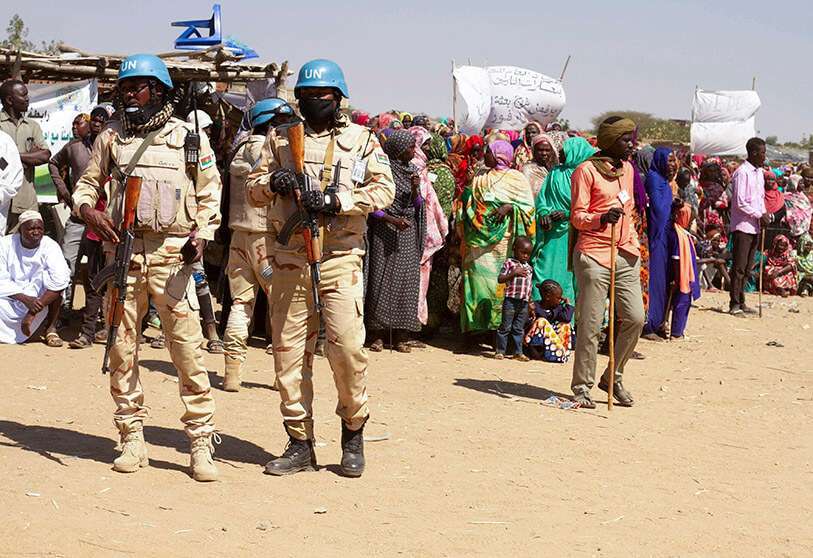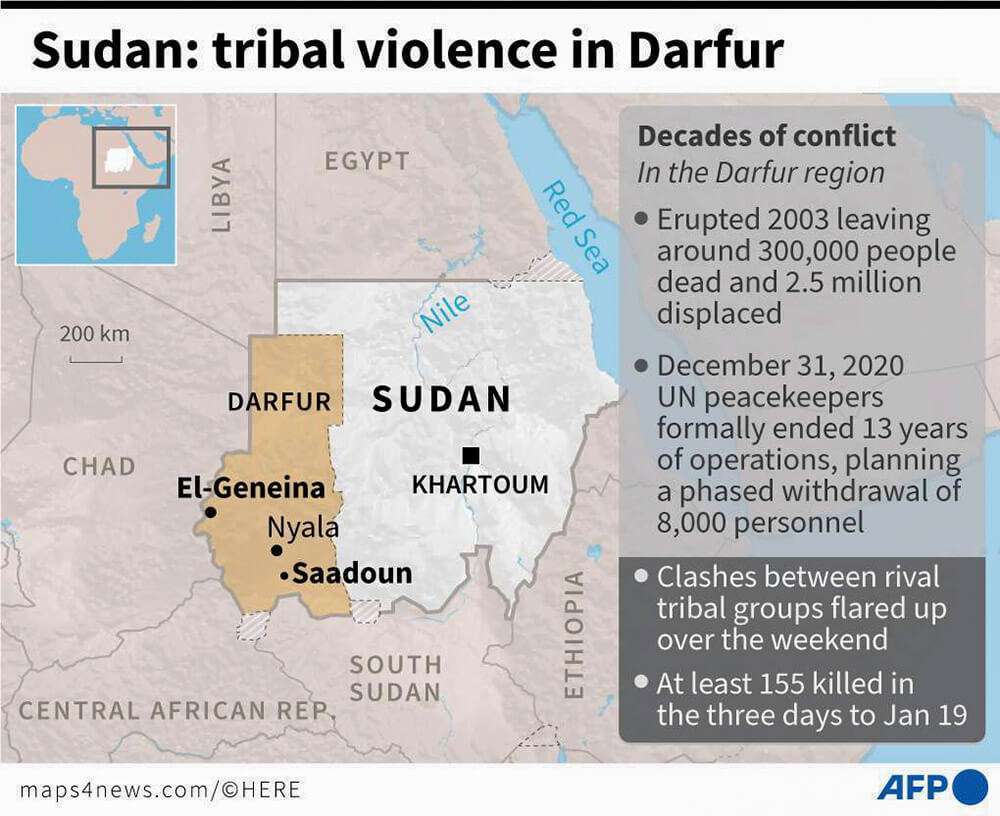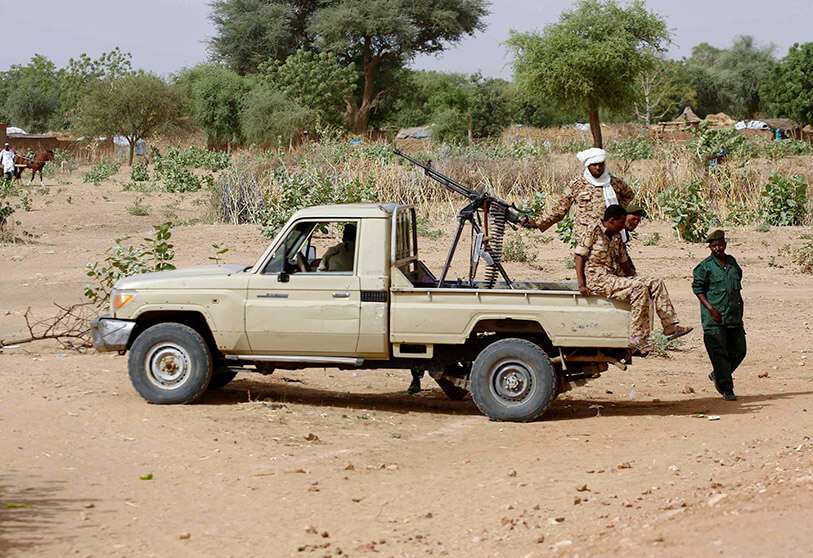Security Council convenes meeting to discuss Darfur situation

The UN Security Council is meeting today to discuss the situation in Darfur (Sudan) after several days of deadly clashes between the ethnic groups that inhabit the region, one of the poorest in the country with nearly five million people who have received humanitarian aid between January and September 2020.
The meeting, which will be held behind closed doors, was requested by three non-permanent members of the Security Council, Norway, Ireland and Estonia, as well as three permanent members, the United States, the United Kingdom and France.
In this area, located in the west of the country in the heart of the Sudanese Sahel, people of different ethnicities live together, the only thing they have in common is that they profess Islam as a religion.
On 31 December 2008, UNAMID (African Union-United Nations Hybrid Operation in Darfur) ended the peacekeeping mission established in 2008 as a result of the civil war that devastated the region, leaving more than 300,000 people dead between 2003 and 2008, after armed groups rose up against the government in protest at the poverty and marginalisation they suffered.

The end of the mission has been gradual, reducing the number of personnel since 2017 from 16,000 on the ground at the time to 6,000, including 4,000 military personnel, at the end of December last year, and will not complete the drawdown until June this year.
Jeremiah Mamabolo, head of UNAMID, told EFE news agency that the mission had succeeded, despite the obstacles of former President Al-Bashir, in carrying out its mission. "We gained the trust of the people of Darfur, especially in the camps for displaced persons, by providing them with security and humanitarian aid," Mamabolo said, noting that of the 2.5 million people who once lived in the camps, there are now 1.8 million.
The UN envoy recalled that despite the peace agreement signed in October, "the Sudan Liberation Movement led by Abdel Wahid Nur is still active in Central Darfur state and bloody tribal conflicts continue in several states" that make up the region.
The peace agreement includes the formation of a joint force between the Sudanese army and rebel groups to protect civilians in Darfur. However, the latter oppose the termination of UNAMID because they believe that the Sudanese state is not prepared to guarantee the security of its inhabitants.
The decision was taken by the Security Council on 23 December at the request of the Sudanese government following the signing of a peace agreement between the government and the country's main rebel movements.

In June, the United Nations decided to create a new mission, UNITAMS, which will cover the whole of Sudan to accompany the democratic transition following the overthrow of dictator Omar al-Bashir in April 2019. Fears of a security vacuum until the new force is operational have been realised.
The inhabitants of the 155 IDP camps that remain in the region and those of the 20 camps set up in the neighbouring countries of Chad and the Central African Republic feel truly insecure, as the spokesman for the General Coordination of Displaced Persons and Refugees, Adam Riyal, assured EFE.
According to Riyal, the peace mission was able to document human rights violations despite its weak power to act and warned that killings, rapes and looting continue to take place in Darfur and that the joint forces of the government and armed groups will be unable to deal with situations of armed violence, such as disputes over control of water between African tribal farmers and Arab herdsmen, which frequently lead to deadly clashes. For this reason, they called for the continuation of UNAMID as well as the armed groups that have made a pact with the government.
"The Security Council's decision regarding the peacekeepers is frustrating, because it was possible to maintain the joint mission until the start of UNITAMS activity, which is expected to be completed by the end of 2021," said Mutassim Saleh, spokesman for the Justice and Equality Movement, a leading Darfurian movement.
A view not shared by the governor of South Darfur state, Musa Mahdi, who recently claimed that the time was ripe for UNAMID's exit. However, it was precisely in South Darfur that the bloodiest clashes have taken place, with approximately 200 people killed in fighting between members of the Fara and Rizeigat tribes.

In West Darfur, 139 people were reportedly killed and 200 wounded in fighting that erupted last Friday in Geneina, the regional capital, following the death of a member of the Arab nomadic community in a fight with a member of the Mesalit community.
In total, since the United Nations announced the end of the peace mission, more than 300 deaths have already been recorded, which has set off alarm bells for the international organisation and the Sudanese government, which has promised to increase its efforts to guarantee stability in the area.
In this sense, it has revealed that it will deploy the combined force of the Sudanese army and the rebel groups that signed the aforementioned pact, although the late activation of this clause of the agreement together with the beginning of UNAMID's withdrawal is what has created the security vacuum that has been exploited by several armed groups.








